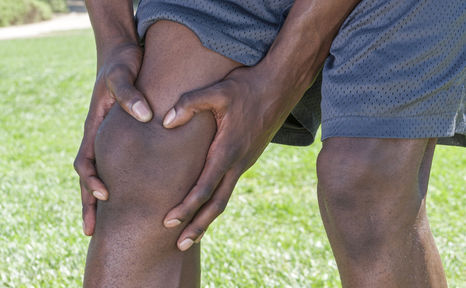

Do you have any of these signs of arthritis?

Joint pain and stiffness? If you’re older, you might accept this pain as part of aging; if you’re young, you might shrug off arthritis as a disease for the elderly. If you do have arthritis, the earlier you find out the better so that you can take appropriate measures to protect your joints from further pain, damage, and inflammation. According to the Arthritis Foundation, some types of arthritis can also cause damage beyond your joints, to your heart and other organs.
If you have been experiencing joint pain, check out some of these warning signs of arthritis, so you know if it might be time to see a doctor:
It’s normal to need a good stretch in the morning after being in bed for a while, but if you find that you are unable to move about easily for a half hour or longer, this may be a sign of something more serious. Stiffness may not only occur in the morning. If you have arthritis, this may also happen after sitting down for a long time at work or watching a movie.
If you feel joint locking or stabs of pain as you climb stairs or bend your knees, this could be a sign of trouble, especially if you are overweight. Around 60 percent of obese people develop arthritis. Be sure to notice if there are any changes in how steadily you are able to stand, walk, or stand on your tiptoes.
A sudden feeling of extreme pain in one of your joints is certainly something to have checked out. Generally, arthritis pain of this type will happen in the big toe, but it can occur in other joints as well. In addition to feeling painful, the joint may also be red, hot to the touch, and tender.
If you find that you are chronically tired, losing your appetite, or have a fever that persists for several weeks along with your joint pain, these may be signs of arthritis. You might also watch for dry, sore, red eyes. These flu-like symptoms may present themselves either suddenly or gradually.
Bone spurs present themselves as odd-looking bumps or small enlargements on a finger or toe joint. The spur will most likely be stiff and feel like bone, but won’t necessarily be painful to touch.
Simple tasks like buttoning your shirt or tying your shoelaces that should be easy to do become difficult if you have certain types of arthritis. The affected joints are often red, warm to the touch, and tender.
If your pain is so excruciating that you are unable to fall asleep, awaken in the middle of the night, or are unable to participate in your usual daily activities, it is time to see a doctor. Any pain that interferes with basic tasks and rest should be reported to your healthcare provider.
Not every twinge of pain that you feel means that you need to rush to the doctor, but if you are experiencing some or all of these symptoms, you may want to discuss the possibility of arthritis with your healthcare provider.
Using Scheduling to Manage Arthritis Symptoms
Does Technology Promote Symptoms of Arthritis?
Talking to Your Doctor: Find the Right Words to Describe Your Symptoms
Copyright © www.orthopaedics.win Bone Health All Rights Reserved